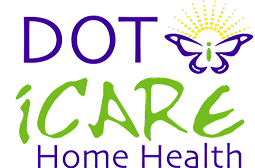Autism In Seniors – What You Need To Know

Your loved one may be part of a lost generation. Do they ever exhibit odd personal habits, especially in their encounters with other people? Have they always been thought of as “quirky” or “eccentric”? If so, there is a chance that your elderly relative may be on autism spectrum. Not to say that eccentricities is always equated with autism; there are plenty of quirky individuals who do not suffer from autism as there are plenty of those on the spectrum who display no symptoms at all. But, it is something to consider.
Autism was first diagnosed in children in the 40’s, but it did not gain traction with healthcare until the 1980’s. While some children were diagnosed, the autism spectrum was poorly understood. The treatment and care for autistic individuals would seem pre-historic compared to today’s standards. Thousands of autistic children were never properly diagnosed. Some were labelled with schizophrenia or other mental illnesses and institutionalized; others were considered “strange” and spent their lives marginalized; and some managed to overcome their challenges and live full lives. In fact, you may know some undiagnosed autistic people. Autism rates in seniors would be equal to those in children; there are approximately 100,000 adults in Ontario who are on the autism spectrum[1]. Many of these people would now be seniors and many remain undiagnosed.
While some seniors on the autism spectrum are living full and healthy lives, other may need additional care. Illnesses and conditions that plague seniors can be compounded and made more problematic by autism. Autism can interfere in the learning process which may restrict an individual’s ability to absorb knowledge and put it to practical use. Basically, a senior with autism may be properly receiving the information they need in order to take care of themselves. Those with autism will also communicate in different way; if your loved one is suffering from autism, they may not be able to properly tell you their needs and desires. Another thing to consider is that autism sufferers are often socially isolated which can lead to the degradation of mental health.
So, what can you do? First, don’t jump to conclusions. Just because your loved one demonstrates odd behaviour or communicates differently, it does not mean that they have autism. To assume so diminishes those who are actually suffering. Ask questions. If you strongly suspect that autism might play a role in their behaviour, consult a doctor. If your loved has been diagnosed with autism, seek out a local organization and Autism Canada on resources and information for caring for those living with autism. Your loved one will also require a lot of patience, love, and understanding.
Living on their own can be a challenge for seniors on the autism spectrum. You may want to consider bringing in a home healthcare caregiver to help you and your loved one. iCare Home Health offers premier home care service that will meet all of your loved one’s needs and ease your worries. Offering a wide variety of services including Companionship, Personal Support and Nurse at Home. iCare Home Health will provide live-in and periodic caregivers. Whatever your needs are. iCare Home Health will provide with professionalism and kindness. Contact us today to find out more.

